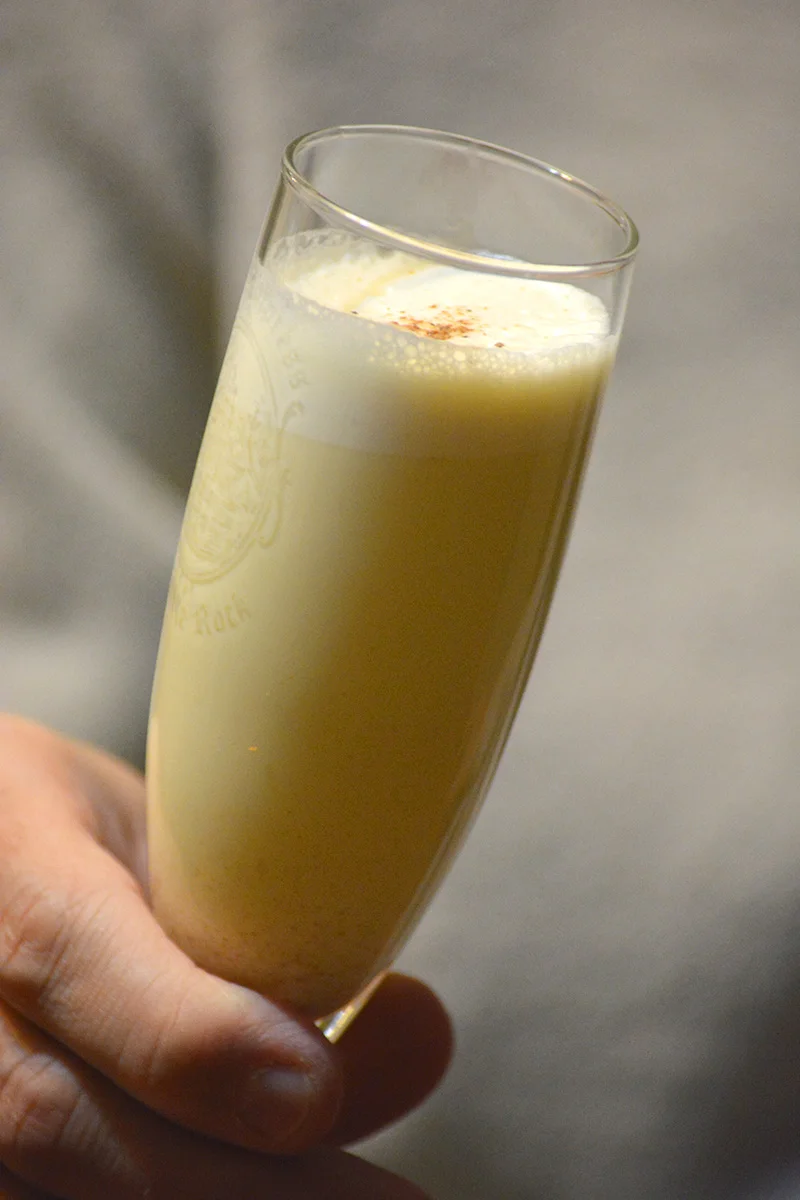A Twist on Egg-Nog (Single Serving)
It’s that time of year—when the grocery-store shelves become lined with that delicious substance known as egg-nog (or at least what passes for it now that most of us are petrified of eating our eggs raw or whole).
Did you know that whole, raw eggs are extremely healthy for you?
("Gasp! Horror of horrors! Eat raw eggs? Is she trying to kill us all from salmonella poisoning?!")
Nope. I eat ’em all the time. Have since I was a kid, actually. (In drinks like the ones below, not slurping them down whole.)
Really, the way eggs are handled these days—chilled right away, then kept chilled until the time of consumption—the chances of contracting salmonella from them is minimal-to-none. They are a closed environment.
(Caveat: Eggs produced in over-crowded barns that rely heavily on antibiotics to keep the hens healthy may be subject to salmonella contamination. Eating pasture-fed eggs that have been properly refrigerated should pose no threat. These eggs are widely available in most grocery stores.)
I love egg-nog with as much ardency as the next red-necked Canadian. (The next red-necked Canadian being, of course, my European tourist of a sibling. She stocks it nearly year-round in her fridge in Seattle, “the Land of Nog”—otherwise known as the Kingdom of Over-priced Coffee.) However, I don't want to feel like I'm jeopardizing my health by drinking it from the store, with the cocktail of other ingredients each box contains. So, here are a couple of healthier versions of egg-nogs for you to try, in portion sizes for you to enjoy whenever you wish. Enjoy!
Traditional Egg Nog
Serves 1
In a blender, add 2 eggs, 1 tbsp. maple syrup or 2 tsp. raw honey, 1 cup whole milk, 1 tsp. pure vanilla extract, and a sprinkle of nutmeg. Blend on high until frothy, pour into a tall glass mug and enjoy!
Banana-Nog
Serves 1
This thicker version helps you get some of your daily fruit servings, and requires no additional sweeteners. We buy large amounts of bananas and peel and freeze them at the peak of ripeness for recipes such as this and shakes.
In a blender, place 1 to 2 eggs, one banana (fresh or frozen), 1 tsp. vanilla, a sprinkle of nutmeg, and 1 cup whole milk. Blend on high until frothy and serve.
Healthful add-ins: These can be added to either recipe for extra healthy benefits: 1 tbsp. expeller-expressed flax oil, 1/4 tsp. of liquid mineral supplement
Chocolate Banana-Nog
Use same recipe as Banana-Nog, but replace vanilla and nutmeg with 1 heaping tbsp. cocoa, and add 1 to 2 tsp. raw honey.

